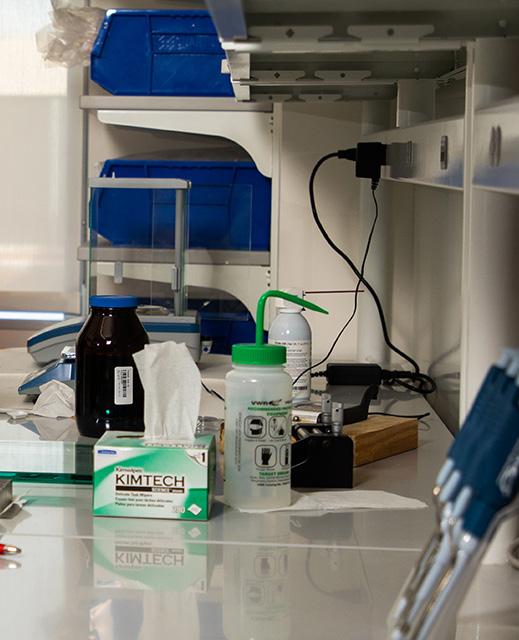
2 minute read
Chemistry Researcher Wins Petroleum Grant
from CSMConnect Spring 2020 (Issue 15)
by Kennesaw State University College of Science and Mathematics
Altug Poyraz to investigate carbon nanomaterials
Altug Poyraz, an assistant professor of inorganic chemistry at Kennesaw State University, has been awarded an American Chemical Society Petroleum Research Fund (ACS-PRF) grant for research on petroleum coke, a carbon-rich solid fuel produced during the oil refining process.
Advertisement
The ACS-PRF grant is intended to encourage investigators to pursue areas outside the scope of their usual research.
“Federal funding is extremely competitive and, typically, researchers are expected to have an expertise and background in the area of their proposed research,” said Poyraz. “This ACS-PRF grant will allow me to gain experience in the field of carbon materials, more specifically petroleum coke-based carbon materials, which are increasingly gaining popularity in many areas of science and engineering
Poyraz, who joined KSU in 2017 from the Brookhaven National Laboratory, maintains a nanomaterials research group with interests in the broad area of inorganic materials design, synthesis and characterization.
The ACS-PRF grant will allow him to explore new possibilities within organic materials like petroleum coke (PC), a product of the oil refinery process used as fuel in refineries. It is also used as raw material in the cement, steel and aluminum industries.
According to Poyraz, conventional PC activation, which involves using highly toxic chemical and physical activations of carbon under extremely high temperatures, is used to create tiny, nano-sized pores in the substance. However, the carbon materials resulting from these methods have much smaller pore sizes, which limits the use of these materials in some applications.

Scientists are looking for ways to fine-tune the size of the pores in carbon and carbonbased nanomaterials to expand their use.
“Carbon materials with tunable pore sizes are highly anticipated in various fields of science and engineering owing to their high surface area, large pores and pore volume,” Poyraz said. “In our proposed research, we hypothesize that large-surface area and poresize carbon materials can be synthesized, which could help PC become more usable and potentially lead to more efficient petroleum-based fuels in the future.”
Poyraz was recently recognized for his contribution in the field of chemistry at KSU’s John C. Salerno Memorial Research Symposium, a symposium highlighting a cross-section of faculty research at the University.
He won the John C. Salerno Prize for Research Achievement for developing a nonflammable, aqueous rechargeable Zinc-ion battery that last longer than a similar lithium battery.
In addition to his teaching and research duties, Poyraz serves on the editorial board of Nature Scientific Reports.






